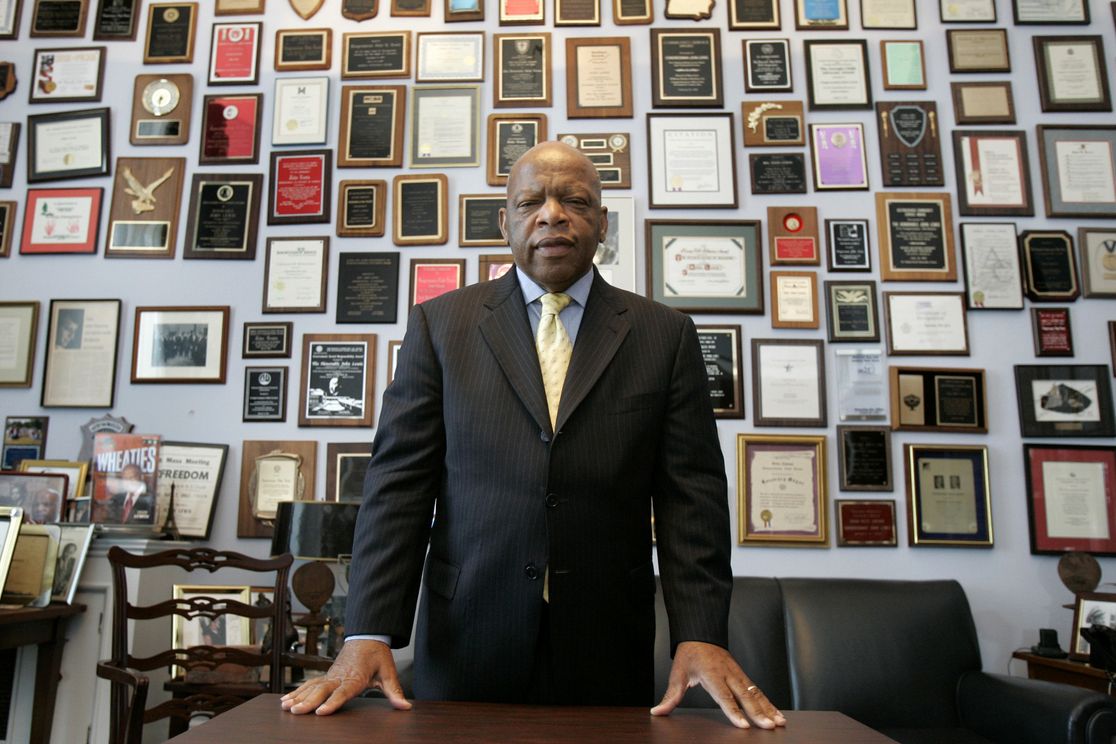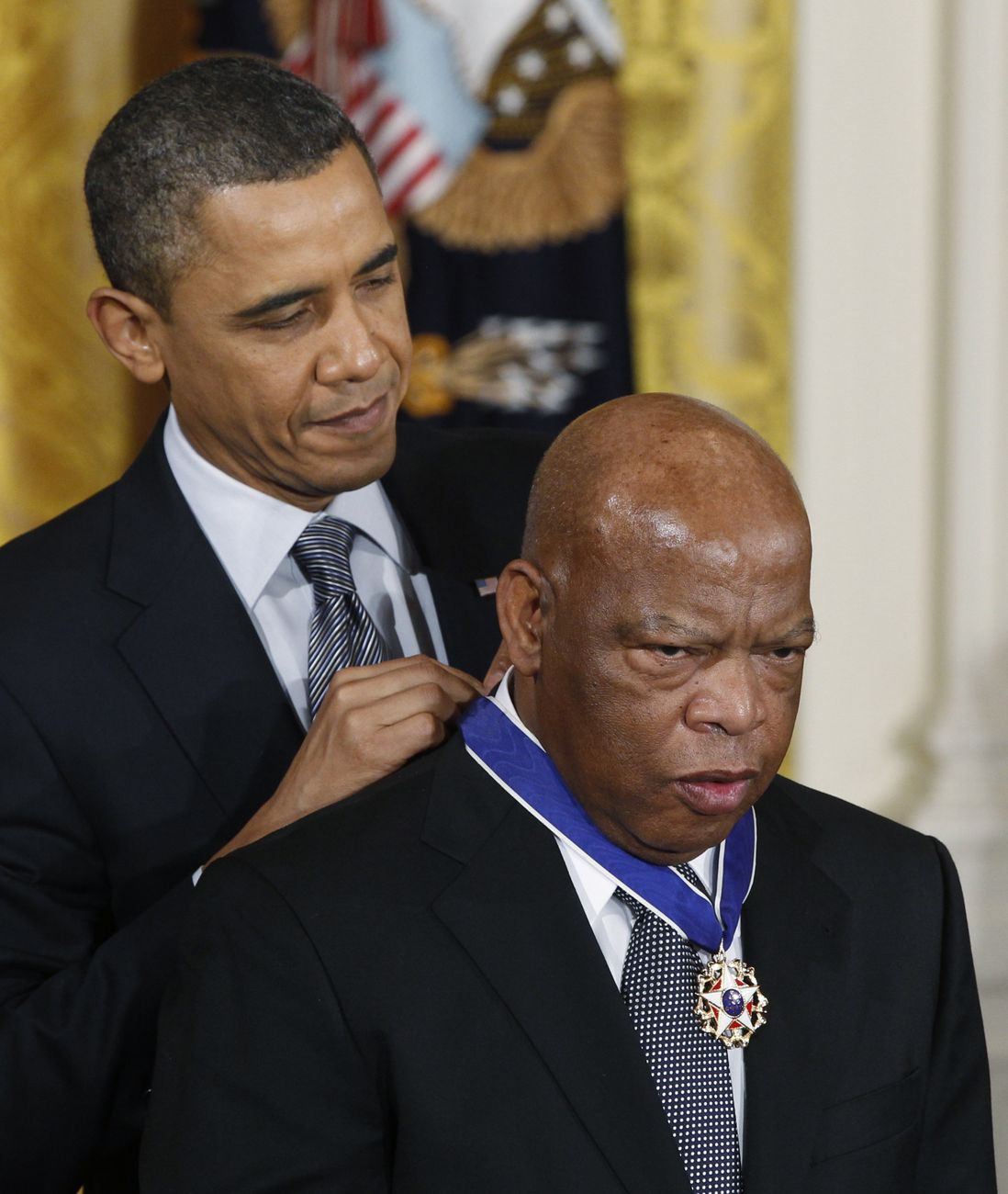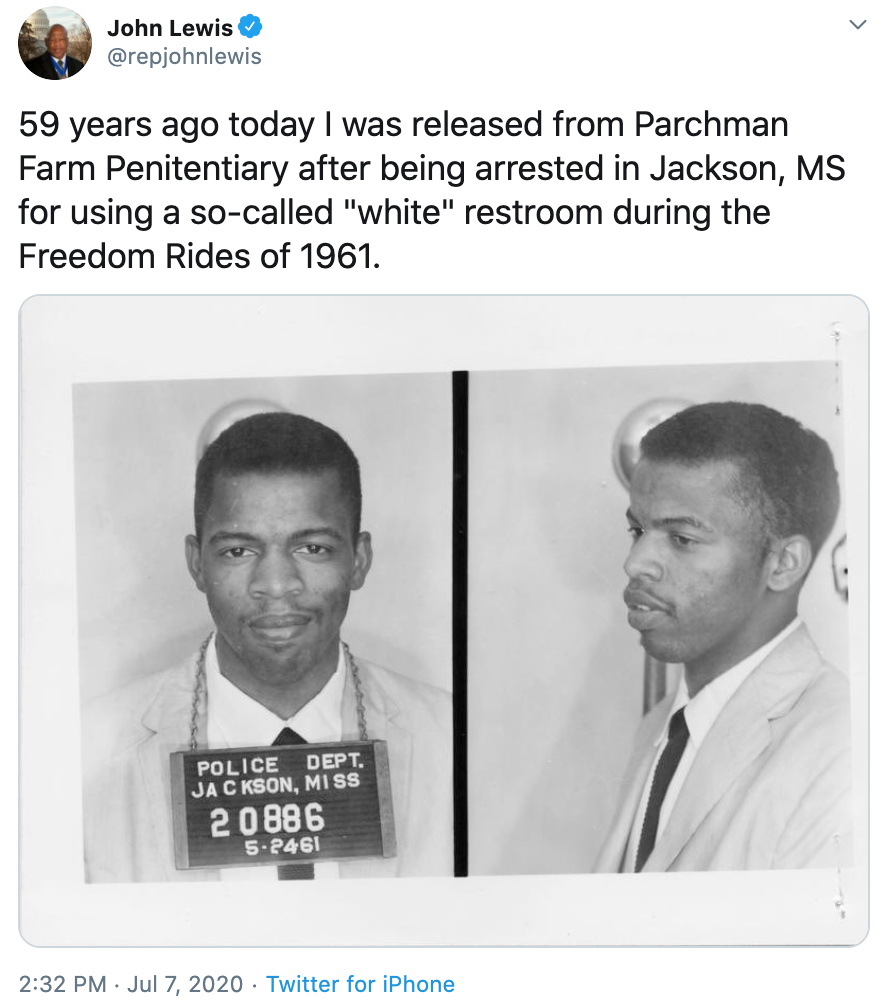Thank You John Lewis, Thank You for your Life
I am posting this article as it appeared on AXIOS today. I would like to thank David Nather, Axios managing editor for such a piece. I never met John Lewis, that is why I feel fine posting what others wrote that knew him better, But I followed his career as an adult being impressed by his life. You could see his charm, his scars of life, his knowledge weathered by the many years when he talked or laugh or argue a point. His arguments were more of a professor telling his students that no matter how they feel the Earth is round and it will not change because they find it is inconvenient. In this age in which you can't trust politicians, or those who say they are not politicians but run like politician and say half-truths or untruths altogether. I mean there is nothing wrong being a politician because this is our system of government. What we don't need are autocrats. Autocrats that are in the game for themselves. The bad part of being a politician is a lying politician. But John Lewis was the old fashioned guy that came into the game to make changes for his people and the American people in a whole. He was nice to nasty ignorant politicians and I would wonder and say to myself , that would not be me! He had a good life! He can now face what ever the universe has waiting for his spiritual being. Thank You.
| John Lewis "convinced you by his life" |

Rep. John Lewis in 2007. Photo: Susan Walsh/AP
John Lewis of Georgia, who died yesterday at 80, lived and led through America's two great leaps toward racial justice:
The arc of history, embodied.

President Obama bestows the Presidential Medal of Freedom in 2011. Photo: Larry Downing/Reuters
John Robert Lewis died after a battle his cancer, spokeswoman Brenda Jones told his hometown paper, the Atlanta Journal-Constitution:
He was honored and respected as the conscience of the US Congress and an icon of American history, but we knew him as a loving father and brother.
He was a stalwart champion in the on-going struggle to demand respect for the dignity and worth of every human being. He dedicated his entire life to non-violent activism and was an outspoken advocate in the struggle for equal justice in America.
His legacies include the Smithsonian National Museum of African American History & Culture, opened in 2016 in a rare addition to the National Mall.
Just 10 days ago, Congressman Lewis posted this evocative flashback — one frame that tells so much about America, sent from the official account of a United States congressman:

Go deeper: More tweets, tributes.
|
Comments